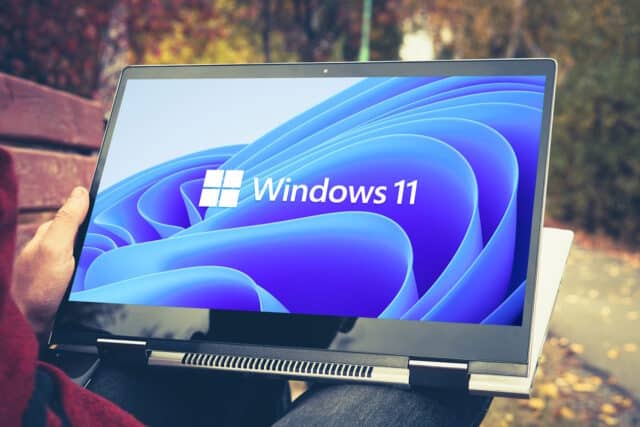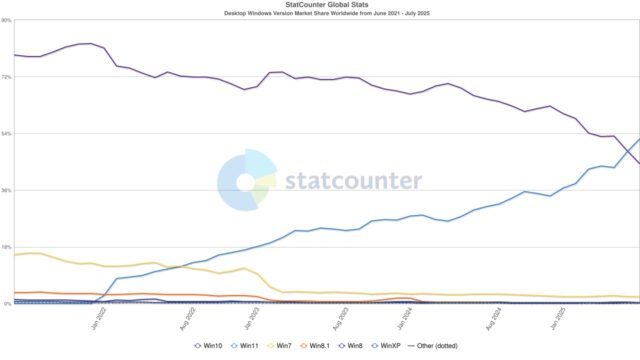Windows 11 is finally more popular than Windows 10

It took a long time, undoubtedly much longer than Microsoft would have liked, but Windows 11 is now more popular than Windows 10. The most recent version of Microsoft’s desktop operating system is now installed on more desktop computers than its predecessor.
Is this a cause for celebration at Microsoft HQ? Probably not. While Windows 11 may finally have a larger install base than Windows 10, it took four long years for this landmark to be reached. In the world of software development, that is an age.
Windows 11’s glacial spread to more and more computers results in the operating system overtaking Windows 10 only this month. Back in June, Statcounter GlobalStats showed that Windows 10 had a 48.76 percent share of the desktop Windows version market worldwide, while Windows 11 trailed slightly with 47.98 percent.
July sees the operating systems switching places. The latest figures show Windows 11 with a 52.19 percent market share, and Windows 10 dropping down to 44.48 percent.

Although taking the number one slot took a long time, Windows 11 dominating the Windows desktop market was ultimately inevitable. The questions to answer are why did it take so long, and what has made the difference after four years?
It is hard to ignore the resistance there has been to Windows 11. Many people simply saw no compelling reason to upgrade, while hard requirements made doing so impossible to many others who could not afford new, compatible hardware.
There was, and still is, a lot of love for Windows 10 – which is incredible when you consider the operating system was released a full decade ago. But Microsoft has used a number of tactics to push and promote Windows 11 to holdouts, forcibly upgrading systems in some cases, or at least making it appear that users had no choice but to upgrade.
Then there are the scare tactics being attached to the end of support for Windows 10 later this year. Microsoft has been warning for what feels like forever that there will be no more updates after October 2025, and that to continue using Windows 10 unsupported would be a massive security risk.
It is certainly true that continuing to use an unsupported operating system is something of a risk, Microsoft has played on people’s fears in a way that has felt almost unnecessary, verging on bullying.
As time goes on it will become even harder to stick with Windows 10, but there are huge financial costs involved in making the jump to Windows 11 – not just for home users, but especially for business and enterprise users.
Even Microsoft has had to concede defeat to some extent. Despite its warnings about Windows 10, users have continued to cling to it. Panicked at the prospect of millions of insecure PCs around the world (and a disgruntled user base), the company was forced to provide yet another extension to security update availability stretching into 2026 for those willing to play the game.
This offering of yet another lifeline to Windows 10 users could see the rise of Windows 11 usage flattening. For now, the operating system reigns supreme, but will it last...and is it justified?
Image credit: Dmitrii Melnikov / Dreamstime.com
